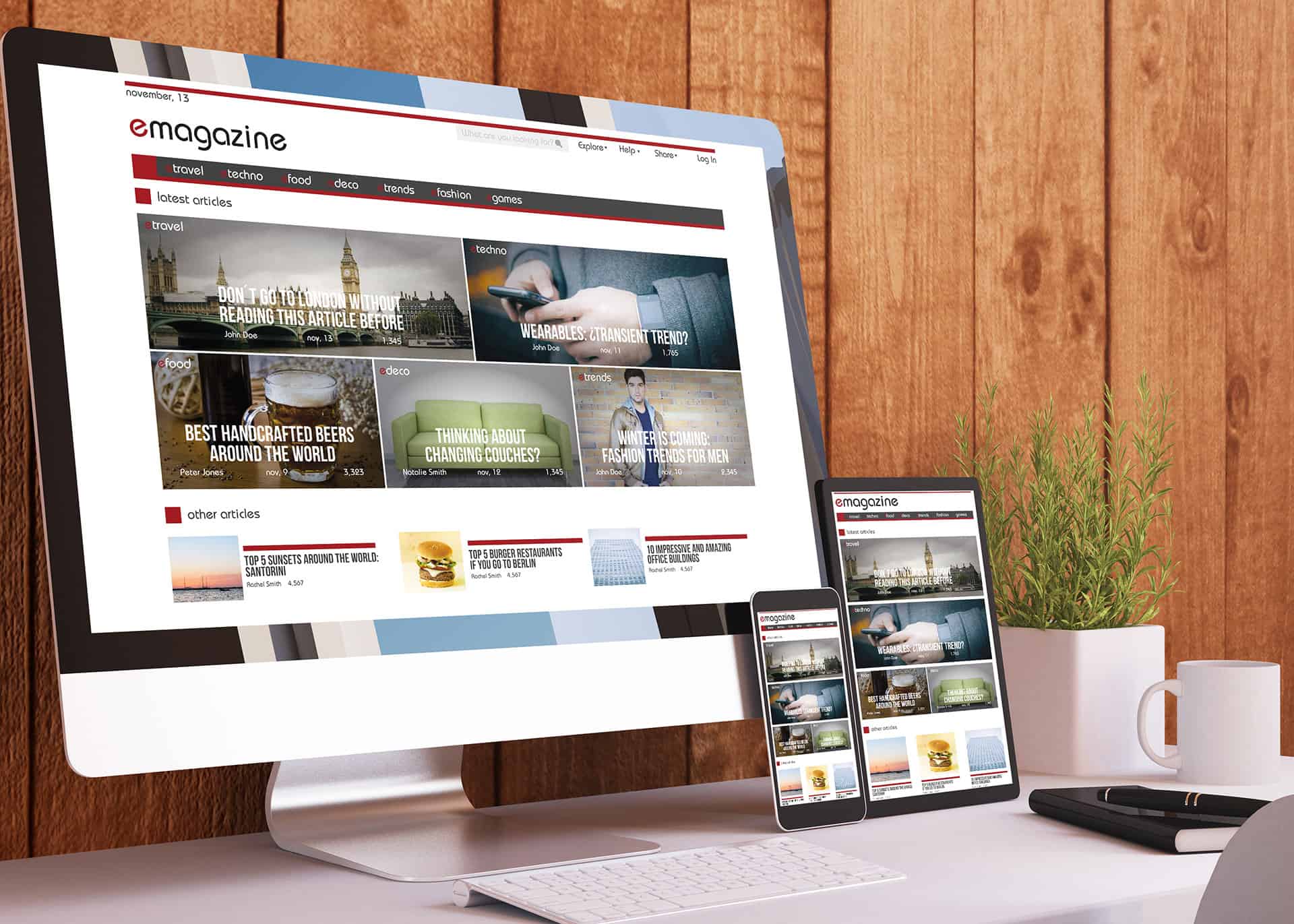If you had to think of some of your favorite (or the most recognizable) brands, what stands out about them? It’s likely that one of the first things you remember about any brand is their logo, along with any strong color choices on packaging. This in itself is reason enough why your business really needs a logo.
You might think this kind of logic doesn’t apply to small businesses or startups, but brand identity is just as important (or even more so) for them than it is for larger companies. Here at Gee Productions, we understand the value of a strong brand identity, so we’ve put together our top 5 reasons for why your business really does need a logo.
1. A snappy logo grabs attention
Most businesses nowadays have to compete in a fairly saturated market. Regardless of your industry, there are most likely many other businesses trying to occupy the same space as you, whether it’s locally, nationally, or internationally. So you need to do everything possible to grab the attention of your potential customers and bring them to your business. A logo is the perfect way to do this.
A business logo is going to be one of the first things people see from your company. You can often fit a logo where there’s no room for text, so there’s every chance people will see your logo before they learn your business name. Your company logo should therefore grab attention straight away and give people a reason to be interested in your brand and what you have to offer.
Similarly, your logo is often the thing on which most customers will form their opinion about your business. As mentioned, if it’s the first thing they’ll see, then it needs to get their attention and create a good impression about you. It should offer some indication of what you do, but still leave things open enough so that they have to visit your website to get more information.
2. A good logo really is the foundation for your brand
This is a very similar point to the one above, but definitely needs mentioning on its own because it’s so important. Companies like Apple and Windows have very simple but effective logos that are foundational to their brand’s identity. What’s more, they’re instantly recognizable to the point where even people who don’t use their products know what they are. While this is more than a small business would expect from their logo, it’s still a good thing to aim for.
Your business logo should be one of the first things you consider when building your brand identity. After all, it’s going to be put on any products you sell, any marketing campaigns, your website and social media, and any other place you can think of. Therefore it needs to be something relevant, interesting, and on brand.
3. Sets you apart from the competition
Branding works on many levels, but one of the most important is setting you apart from the competition. For example, if you’re opening a coffee shop, it might be tempting to include a coffee bean in your branding as it’s on topic. However, consider how many other coffee shops had this exact same idea. Now consider a company like Starbucks, which decided to use a mermaid as its logo. It definitely stood out from the competition.
However, don’t go too far away and come up with something completely random. An effective logo should be on topic, but with a twist that differentiates it from the potentially hundreds of other brand logos in a similar area.
4. Logos make a big difference to brand loyalty
It’s amazing how attached customers can get to a brand’s logo. After all, it’s one of the defining features of their brand identity, and is often the thing customers latch on to most (aside from the quality of the product, of course). An effective logo should not only create interest in the brand, but should also give customers a reason to stick with it.
As a side note, simple, bright, and easily recognizable logos are the best for creating brand loyalty. A logo that tells a story but is also a bit playful will help to get people on board with your idea, but will also create that desirable air of professionalism that’ll keep the customer with your brand in the future. While this might sound like it’s overstating things, much of this goes on in your subconscious without you even realizing it.
5. Customers definitely expect you to have a logo
Very few businesses can survive without a logo, even small ones. Think of as many companies as you can without a logo. While you might be able to name one or two, there aren’t many out there. Even small, local businesses without a heavy marketing presence have a logo because they understand the importance of building a solid brand identity.
On top of that, it’s fair to assume that most customers expect you to have a logo, along with other branding. While a lack of logo might not put all customers off using your business, it’ll probably cause most to wonder how long you’ve been in business, and how professional you can really be if you haven’t finished your branding yet. After all, why would an established company not have appropriate branding to their name?
Having a logo is much like having a social media presence: it’s become an expected part of modern brand identity. Making a name for yourself in business requires a certain minimum standard to which you have to conform, and having a logo definitely falls into this minimum standard.
Conclusion
As marketing and web designers, we understand the value a well-designed logo can add to a business’s identity. Along with generating interest and creating a good first impression, a logo should also foster loyalty to the brand and solidify its image in the customer’s mind. So remember not to overlook the importance of a logo for your brand’s identity.


